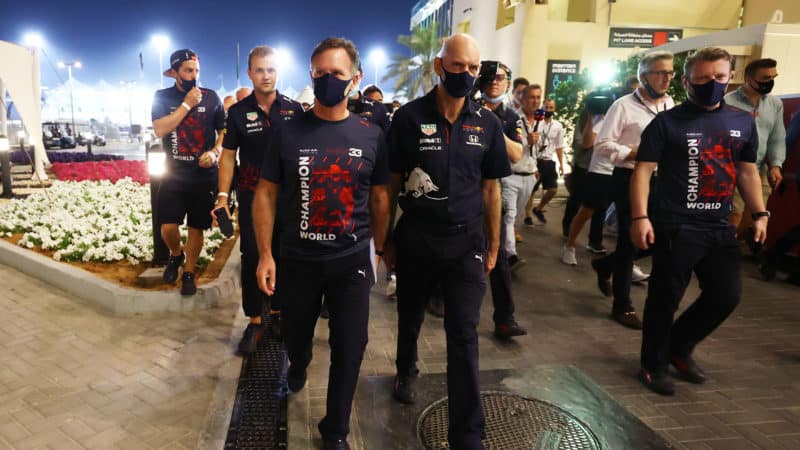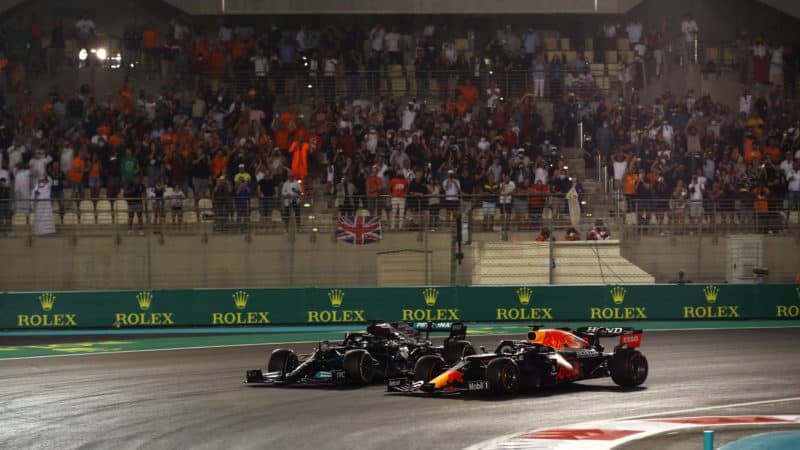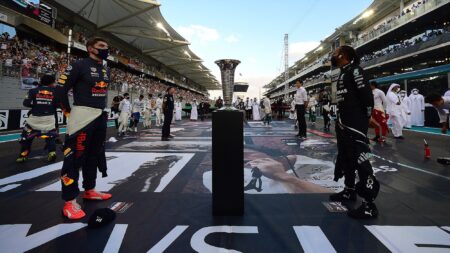People have valid points. What happened at the Abu Dhabi Grand Prix was wrong and needs to be looked into, properly addressed. Lewis Hamilton and Max Verstappen themselves had nothing to do with it – they raced cleanly on track and where they haven’t, throughout the year, they’ve been penalised. It feels like taking my life in my hands to say this but before Abu Dhabi they’d actually been really balanced in terms of who gained an advantage over who, one rarely retiring without the other and events conspiring to strangely even out.
When Hamilton looked like he’d been given an enormous boon in Baku as Verstappen’s tyre blew out from the lead of the race, he took himself out of the points with a fateful and rare fumble-error. When it looked like the same could happen again in Hungary after the first corner crash, the weird, drying restart sent the Mercedes to the back of the field. Somehow, despite the intense back and forth of the 21 races prior they arrived at the final one dead even.
“The process for the Abu Dhabi report needs to be long and in-depth in order to make sure everyone trusts F1 again”
All through the season people got impatient, from teams and fans to nerve-shot journalists, about the time it took F1 and the FIA to come to decisions. From the stay of execution for Red Bull’s flexi-wing to pressure to investigate Mercedes’ front wing there were plenty of protest and counter-protest.
The processes that sporting bodies – intensely legalistic as they are – use to assess incidents and investigations, especially in the extreme technicalities of motorsport, are very dry. That’s in sharp contrast to the hot anger that incidents spark, within the competitors and for fans. No one watches sport for the legal drama, which is tedious and ceremonial and involves more rubber stamping than victory celebrations.
Broadly speaking, across any subject, online discourse is a poisoned well in 2022. The polarization index developed by US data scientists that monitors division on political issues showed that generally, the extreme differences between people in discussions has stayed at a ‘critical’ level. It’s not granular enough to look into the specifics of fans believing there’s bias against or for Lewis Hamilton or Max Verstappen but some of what it does monitor are topics familiar to F1 in the last two years: racial equity ranks at 88.5 polarization, climate change at 73.8.

Christian Horner and Adrian Newey walk from the stewards’ room
Clive Rose/Getty Images
Anyone who’s moderated the comments on F1 articles in the last year – or made the frankly, pretty grievous error of being a journalist with a twitter account – knows that viewpoints have been getting more extreme. It’s not all fans but there’s enough of a percentage that are deliberate provocateurs: crashmilton or crashstappen determined the moral victors or losers of the title way before it came down to the wire.
Which is how we’ve got where we are right now, with the investigation into what happened at the final race of last year set to conclude immediately before the first of 2022. That might seem like an unimaginably long time except that that’s when the World Motor Sport Council is next set to meet, which is the group that has to sign off any changes to F1’s regulations – which is surely what’s needed to stop it happening again.


